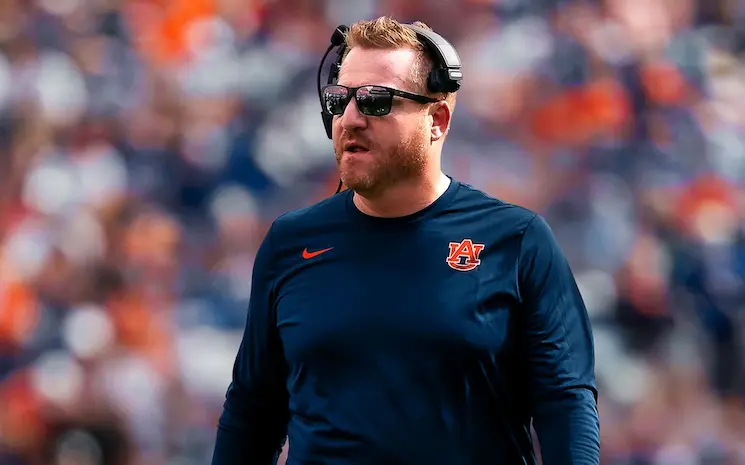This Week in UT Sports History is a weekly column written by RTI contributor Lexie Little
Remember Pat Summitt in this week’s special edition
The president issued a statement from the White House. The governor issued a statement from Nashville. The bells of Ayres Hall at the University of Tennessee played the “Tennessee Waltz” at 8 p.m. in honor of eight national women’s basketball titles. And across the country, the sound of bouncing backyard basketballs ceased as young girls practicing skills and icy stares heard the news.
June 28, 2016.
Knoxville, Tennessee.
Pat Head Summitt, legendary coach of the University of Tennessee Lady Volunteers, Olympic head coach, pioneer for women in sports, and a champion against disease had died following a battle against early-onset Alzheimer’s disease. She was 64.
“We have lost one of the greatest Tennesseans of all-time,” Gov. Bill Haslam said in his statement. “[Pat] never lost sight of the bigger picture in the midst of that. Making certain that every girl on her team that ever played for her graduated, making certain that the women who played for her were prepared for life after basketball, and making certain that she was a part of the larger community.”
Summitt, who coached the Lady Vols for 38 seasons and earned a record of 1,098-208 (.840), led the fight for women across the country to enter into sporting arenas to earn respect through prowess and poise. She guided her program to eight national titles. She coached the 1984 U.S. Olympic team to gold. Her health battles off the court garnered wide appreciation, leading to her honor with the Presidential Medal of Freedom — the highest commendation for U.S. civilians — in 2012 and the Arthur Ashe Award for Courage the same year.
Her influence and example stretched beyond basketball, showing young women and girls that success does not correlate with gender, but with hustle, hard work, confidence, and care.
Tennessee softball co-head coach Karen Weekly recalled her colleague’s commitment to young women and athletes in her reaction statement:
“Pat graciously met with every recruit we brought in on an official visit. And I mean EVERY recruit. I’m not exaggerating when I say we wouldn’t be where we are without her.
“I’ll never forget Monica Abbott’s visit. Pat spent 30 minutes with her, she knew Monica was a program changer. Pat said, ‘Ralph and Karen tell me that if you come to Tennessee, you’ll lead us to the World Series.’ As Monica nodded Pat said, ‘I’ll tell you what, I’m gonna make you a promise right now … you come to Tennessee and when you get us to the World Series, I’ll come to Oklahoma City to watch you. That’s my vacation week but I’ll leave the beach. Deal?’ Monica said, ‘I’m gonna hold you to that,’ and Pat responded, ‘I expect you to!’
“When we clinched our first trip at the 2005 Stanford Super Regional, we were still celebrating on the field when Monica ran up to Joan Cronan and asked her to call Pat so Monica could remind her of her promise. And of course, Pat came to the World Series.
“She was such a giver, and genuinely wanted all of us to be successful.”
Many such statements from the biggest names in sports flashed across news websites and television stations. Geno Auriemma, women’s basketball head coach at the University of Connecticut. Mike Krzyzewski, men’s basketball head coach at Duke University. ESPN President John Skipper. Alabama head football coach Nick Saban. SEC Commissioner Greg Sankey.
NFL and University of Tennessee football legend Peyton Manning.
Summitt had encouraged Manning to stay at Tennessee for his senior season. Posed with the option to enter the NFL Draft or spend one more year in the orange and white, Manning turned to who he saw as an authority on coaching and athletics to help him decide. Summitt’s advice led Manning to an SEC Championship title and the Best College Football Player ESPY Award, finishing runner-up for the Heisman Trophy on the way to a long professional career, which included two Super Bowl titles.
“It would have been a great experience to play for her. She could have coached any team, any sport, men’s or women’s,” Manning said in his statement. “It wouldn’t have mattered because Pat could flat out coach.”
While Summitt transformed players’ lives, she also changed the nation’s perception of women’s athletics and women’s abilities in sporting arenas. Few could imagine women on sidelines prior to the development of her dynasty at Tennessee, but Summitt made her mark on those she encountered, using her platform as a knowledgeable, assertive, and strategic head coach to sell the world on women’s sports.
As Duquesne women’s basketball coach Dan Burt said, when Summitt took the helm at Tennessee in 1974, women’s basketball often failed to make a footnote, even after the 1972 passage of the Omnibus Education Act’s Title IX — which mandated equal federal funding towards male and female students — encouraged more female athletic participation.
Now, women’s games appear on national media platforms (though the climb for equal recognition remains far from over).
“I’m proud that we grew the game of women’s basketball from an intramural played in pinafores into a sport played on national television, in domes, in front of sellout crowds of twenty-five thousand,” Summitt said in her book “Sum It Up,” co-authored by Sally Jenkins.
“I’d always felt a tremendous responsibility to give back to the game; I could never repay what it had given me and meant to me. It had changed my life, and I always wanted to promote it so it could change other women’s lives, too.”
Summitt proved her prowess on the court as a coach, maintaining a professional vision in her promotion of the game. She wasn’t a female coach. She was just a coach. And, according to the winningest coach in college basketball history, she was one of the best.
“There’s no question, [she] was really one of the greatest coaches of any sport,” Duke University and three-time Olympic gold medal head coach Mike Krzyzewski said. “I can remember early in my career when C.M. Newton, one of the great guys in men’s college basketball, wanted to hire her to be a men’s coach. He said ‘Look, you should go to one of her practices because she knows how to coach.’
“She really put women’s basketball out there, in other words, what she did with recruiting, accomplishments and championships really set the foundation for where women’s basketball is in our country right now.”
Though this week marks the third anniversary of Summitt’s passing, her legacy remains well at work. The Pat Summitt Foundation, founded in August 2011, promotes national research and educational efforts related to Alzheimer’s disease through nonprofit grants as others continue the fight for a cure. Additionally, the Pat Summitt Clinic at the University of Tennessee Medical Center opened in 2017 and takes a patient-focused approach to advancing research, detection, family support, and treatment methods.
Meanwhile, Summitt’s former assistants and players leave their marks on professional and collegiate basketball as veteran players, coaches, and analysts. On Rocky Top, Kellie Harper, a former Tennessee national champion who played for Summitt from 1995-99, prepares for her first season as the Lady Vols’ head coach. Each time her players tip off at home, they will do so on the court bearing Summitt’s name.
In a backyard somewhere, a young girl laces up her shoes to practice and pretend she is leading her team to an NCAA title. And right here, a sports columnist remembers the times she did the very same, pretending to play for Pat Summitt. She issues a statement of her own:
Thanks, Coach.





One Response
Thank you Lexi for this well written bittersweet memory of Pat and what she meant to all of us and to the game of women’s basketball. Hers was a life well lived and her impact on lives and the game will continue to inspire others to live with purpose and grace. What a classy lady!